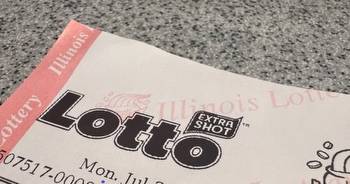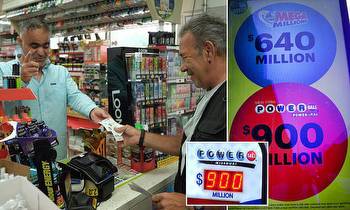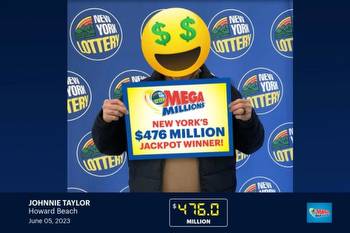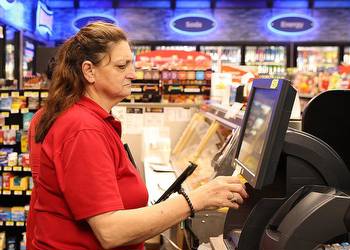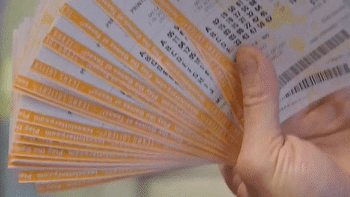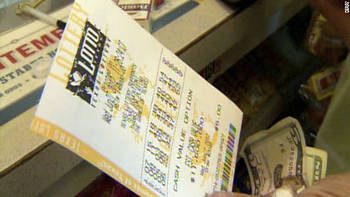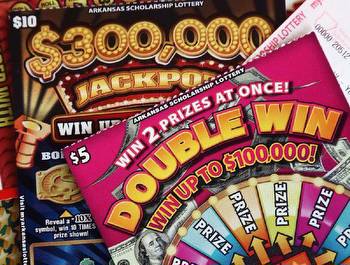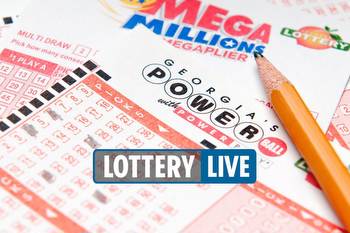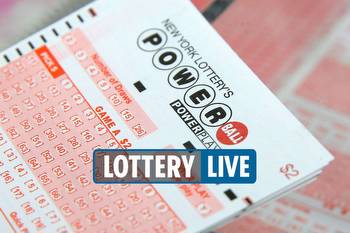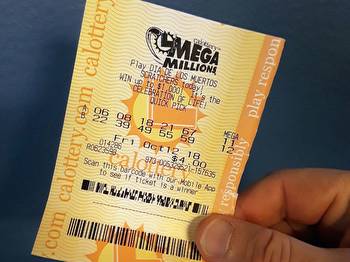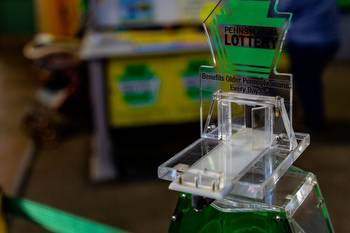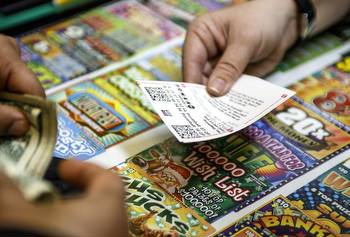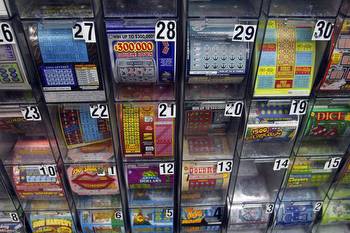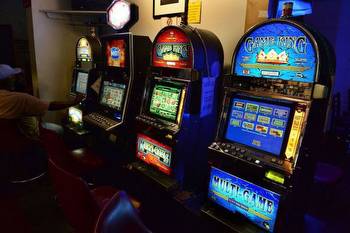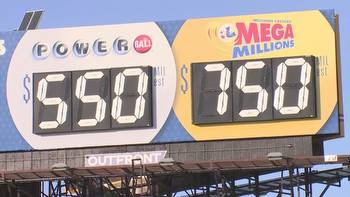As Texas Lottery hits record sales, warnings arise about 'desperation' during COVID

Quincy Johnson slid a $10 bill across the counter at Timewise Food Store on Montrose Boulevard in exchange for a shot at winning millions — a chance he described as “one in a trillion.”
“But you know, I’m OK with that,” the Austin resident said, filling in the bubbles with sentimental numbers. “I feel like everybody wants to have hope in something.”
Months-long growth in Texas Lottery revenue culminated the first week of January when the state’s scratch ticket sales surpassed $133 million. The agency said it was an all-time weekly record that marked a 30% jump from the same time last year. Some of the lottery frenzy in recent days is tied to soaring jackpots for the Mega Millions and Powerball games, which drive up sales across the board, lottery officials said.
But a more concerning factor in lottery popularity exists too, said Les Bernal, director of Stop Predatory Gambling, a national nonprofit advocating against government-sanctioned gambling.
“Many citizens gamble on the lottery to change their financial condition — they do it even more so when they’re feeling a sense of desperation,” Bernal said, adding that the state lottery is “exploiting that desperation by their relentless marketing.”
In fact, there is a direct connection between a spike in Texas Lottery sales and the arrival of COVID-19 stimulus checks, Bernal said. The January spike in lottery sales mirrors a bump in April when the government distrubuted the first round of relief.
Distribution of the second round of $600 stimulus checks — which was expected to be completed Friday — was the result of legislation aimed at helping Americans stay afloat amid record unemployment and crushing financial hardship during the COVID-19 pandemic.
When the pandemic prompted stay-at-home orders in mid-March, lottery ticket sales plummeted for three weeks, according to Gary Grief, executive director of Texas Lottery. But the agency’s scratch ticket sales began turning around in April. Nearly all of the 20,000 lottery retailers in the state were deemed essential businesses.
Grief attributed the April spike to pent-up demand for scratch tickets that followed the initial slow-down. Since that first surge, the agency has maintained a significant increase in sales compared to the previous fiscal year. Other factors driving this growth include casino closures, a lack of other entertainment options and growth trends expected prior to the pandemic, Grief said.
Total lottery sales reached a record $6.7 billion in fiscal year 2020, which ended in Aug. 31, and the growth trend is expected to continue in 2021. The lottery contributed nearly $1.7 billion to public education and veterans’ services in the last fiscal year.
Critics like Bernal, however, warn that the lottery costs taxpayers more than it benefits them. The system relies on people losing, and research shows that those residents are disproportionately people of color and low-income families with little or no savings, Bernal said.
“You walk into any convenience store, gas station — the lottery is pushing this message to you,” Bernal said. “The thing is, it’s a con.”
Research shows that lottery play rises when unemployment rises, said David Just, a Lynch Professor at Cornell University who studies behavioral economics. When anyone experiences a negative shock like unemployment or loss of income, he said, it’s natural to become more inclined to take risks “to claw our way back to where we were.”
“A lot of people look at the lottery as some sort of investment rather than a mode of entertainment,” Just said. “We ignore (low probabilities) to a certain extent because the reward looks like it’s so big.”
Adding to the appeal are stories of multiple Houston-area residents who have won big in recent days. Someone in Pasadena, who chose to remain anonymous, bought a scratch ticket at a local gas station and on last Tuesday claimed a $1 million prize. A lottery ticket purchased at Fuel Zone in Humble matched all six numbers drawn on Jan. 9 , winning the lucky buyer a $7.75 million jackpot.
But the biggest jackpots keep growing. The Mega Millions drawing will take place Tuesday, with a jackpot sitting at $850 million, the second largest in history. The $730 million Powerball jackpot, among the top five largest in the game’s history, remains up for grabs in a Wednesday drawing.
“It’s picking up because of the jackpot,” employee Ali Momin said about business at Lucky Rudy’s, a lottery retailer in Rosenberg where customers formed lines. “This COVID-19 pandemic, they’re broke, so they want to make a lot of money.”
At the Timewise convenience store , James Arthur paid $30 for several Mega Millions tickets. The 24-year-old said he’s not a regular lottery player, but the massive jackpots piqued his interest.
“I didn’t want to miss out in case I’m the lucky guy,” he said. “Go big or go home.”
Hundreds of customers like Arthur have purchased lottery tickets each morning for the past few days, a significant spike, said clerk Francisca Galvez. Most people are going for the games with massive jackpots instead of scratch tickets. Interest in the lottery has been up for the past month, she said, but before that it was dead.
“You’d be surprised how busy we’ve been,” Galvez said after helping a customer fill out a Mega Millions ticket. She wouldn’t mind winning either. “I say one of these days. So far nothing.”
Not every retailer has reaped the benefits of the overall revenue bump. Asim Manasia, manager at Sunrise Super Stop on the corner of Washington Avenue and Sawyer Street, said the city no longer generates a steady flow of traffic like it did pre-pandemic. The store relies on its regular customers.
There has been a slight uptick in lottery ticket purchases, especially scratch-offs, Manasia said, mostly from regulars who have “started playing more than usual.” He guessed that people buying lottery tickets during the pandemic were those with extra savings or residents burning through their stimulus checks.
At the counter of the small store, a man selected numbers aloud and walked out — past a sign boasting of the multi-million jackpots — with a shiny green ticket in hand.
Many people playing the lottery dream about what they would do with their winnings. For Galvez, the Timewise clerk, the answer came quickly: She would donate the money to charity.
That way, she said, “everybody have a little piece.”








